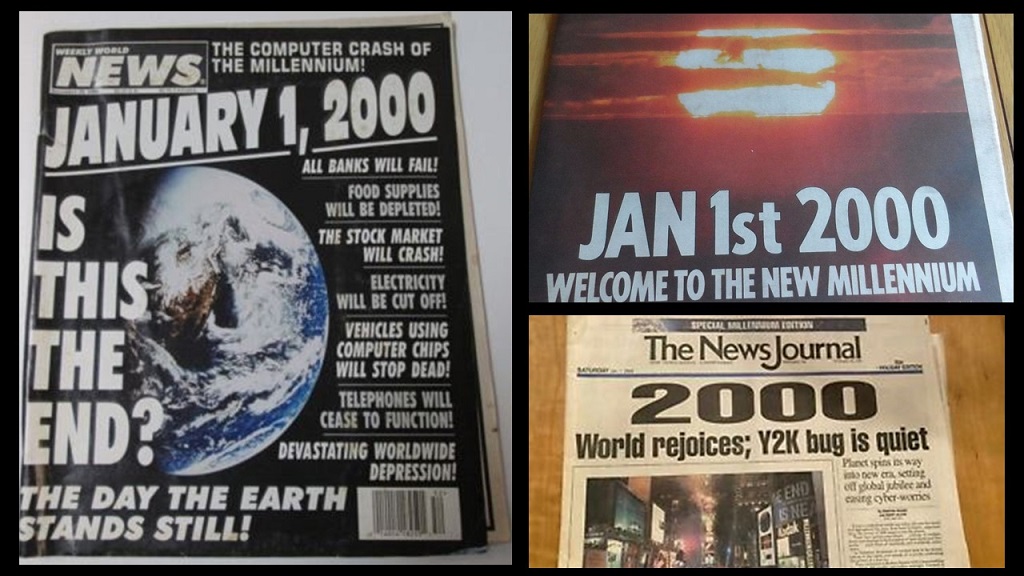.
On the Birth of the Grand Millenium
1 January 2000
A panoply of adolescent eyes
Looks out into the frosty air they breathe
Into the puffs of mist their mouths devise
At wild humanity whose shoutings seethe
While birthing their collective child. Demise
And genesis alike the masses hail;
The masses yearn as massive yearning dies
With shriek of pain and laughter, smile and wail.
We listen to the songs that push the sand
Into a narrow, dreamy shadowland.
The edificial moments glisten bright
To reach that singular, official height—
The prejudicial frock that midnight dons.
Are we the priests? Are we the paragons
Of all creation’s sages gone awry?
But here we warble on and here we cry
Awaiting the advent of alchemy’s
Allure. We hail the annual vortices!
We sing the canticles that drive the sand
Into its narrow destiny—the Grand
Millennium—the aperture of our
Own machination, grandly going sour.
.
.
Jeff Kemper has been a biology teacher, biblical studies instructor, editor, and painting contractor. He lives in York County, Pennsylvania.















Our own machinations seem grandly sour at present. But you have some nice lines and images to remind us of the grand anticipation that fizzled. “The masses yearn as massive yearning dies” is my favorite; we turn cold with unfulfilled desires. And I like your use of the sand image, thinking both of an hourglass and of mountains of sand that can’t be moved to hold any definite shape. This poem seems like a prophetic recollection and warning that doesn’t, in fact, prophesy anything. Nonetheless, I wish you blessings in the new year!
Thanks, Margaret, for taking the time. I love reading your takes on poems. I’m a pessimist concerning humanity as a whole, in line with the biblical point of view, and as history attests. But I have become an optimist concerning the lives in my circle of family and friends.
Many blessings to you as well!
Thank you for your poem and blessings in the new year…Allegra
Thanks, Allegra, and the same to you!
Jeff A great poem this, full of new millennial angst, and what has already come to pass well justifies it. Your poem is full of felicities in your diction, and I particularly like the internal rhyme with edificial and prejudicial. It all seems just as relevant today as it must have been two years ago. Well done! and a Happy New Year, if that is possible.
Thank you so much, Peter.
Jeff, as the fear and panic continue down their never-ending path to doom… I wish you a glimmer of hope in the gloom! That’s as near as I get to wishing anyone a ‘happy new year’ for fear of casting a dreadful spell. Thank you for the much-needed poetic reminder that we must never rely upon “wild humanity” to guide us in the right direction… these dire days, perhaps it’s wiser to lift our eyes above the fray.
Thanks, Susan. For me the excitement of a new year, century, and millennium is how my family and I handle the challenges, successes, and failures. So it is an individual of small group (family, church, etc.) celebration time. I don’t much appreciate mass-celebrating. I try to take each new challenge by hopefully making people happy or improving their lives as time passes. No matter how hellish our culture becomes my role is to reverse that trend in my own little world.
I enjoyed this quasi-apocalyptic poem, Jeff, if only because I never knew quite where it was going, for mystery has an allure all its own. I wish I could counter with a message of hope, but the times do not allow it. I got the sense that you didn’t know where it was going either, but just allowed the poem to write itself, which is often the best way to go. The sour taste it left in my mouth was actually quite pleasant, like the taste of citric acid or good balsamic vinegar.
An interesting take. I was reflecting on the turning of the millennium, of course, and I feel the attraction of tradition as do most people, yet the vanity of its celebration played out on Times Square and the oddballish dropping of a ball, or of a pickle in Dillsburg (a town near my home), or of whatever in whatever town, seems rather pointless and unrelated to ending one year and ringing in another. I suppose it is also sort of a commentary on humanity’s devising something about which to enjoy for the sake of then enjoying it, while going about their meaningless existences ala Kohelet’s Ecclesiastes. Not that I know what is in the hearts of all who thus celebrate, but I can wager a good guess that it was a blip of a high for many (most?) who then returned to their vain existences. And as such, perhaps it can be seen as quasi-apocalyptic. Thanks for your comment, C.B.